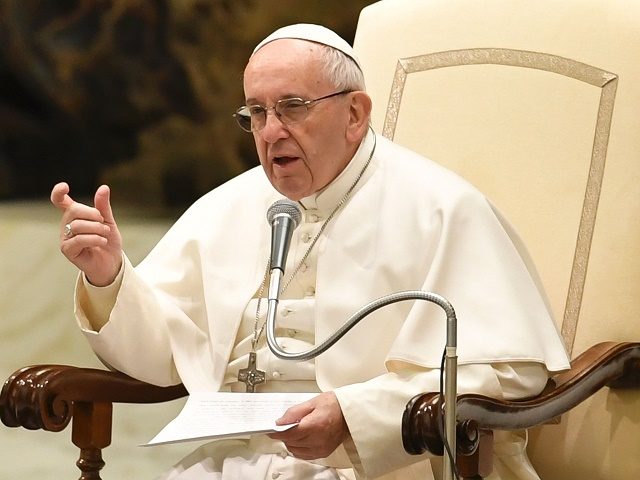A careful distinction must be made between psychological problems and “true spiritual disturbances,” Pope Francis said Friday, but in the latter case, an exorcist should be called in.
Speaking to participants in a course on the sacrament of confession, Pope Francis said that priests hearing confessions should exercise attentive discernment, because those confessing their sins “can come from the most varied situations.”
The person going to confession “may have spiritual disturbances, whose nature must be subjected to careful discernment,” Francis told the priests taking the course, “while taking into account all the existential, ecclesial, natural and supernatural circumstances.”
When a confessor is aware of “the presence of true spiritual disturbances,” Francis said, the priest “should not hesitate to have recourse to those in the diocese who carry out this delicate and necessary ministry, namely the exorcists.”
At the same time, Francis recognized that many disturbances are “in large part psychological,” and their true nature “must be verified by a healthy collaboration with the human sciences.”
Exorcists, the Pope continued, “must be chosen with great care and great caution,” because of the delicate nature of their particular mission.
On numerous occasions, Pope Francis has insisted that the devil really exists and is not a myth or a mere personification of evil. Because he is real, “we have to fight him,” Francis said in a homily in 2014.
In his address Friday, Francis also reflected aloud on the qualities needed by priests who hear confessions.
What make for a “good confessor”? Francis asked.
The pontiff divided his response into three points. A good confessor is first and foremost “a true friend of Jesus the Good Shepherd,” which comes about as a result of a fervent prayer life, he said.
“A confessor who prays knows that he is the first sinner and the first who has been forgiven,” he said. “You cannot forgive in the sacrament without the awareness of having first been forgiven.”
Second, a good confessor is “a man of the Spirit, a man of discernment,” the Pope said. Much damage is done to souls from “activity that is not rooted in listening humbly to the Holy Spirit and the will of God,” he said.
“The confessor does not do his own will and does not teach its own doctrine. He is called to do always and only the will of God, in full communion with the Church, of which he is a minister or servant,” he added.
Finally, Francis said, the confessional is a real place of evangelization. “Authentic evangelization takes place by encountering the God of mercy, God who is mercy. Encountering mercy means encountering the true face of God, as the Lord Jesus has revealed him,” he said.
The Pope concluded his address by insisting to the priests that “hearing confession is a pastoral priority,” and therefore confession shouldn’t be available only according to certain schedules.
Priests should be ready to hear confessions “whenever they are asked,” he said.
Follow Thomas D. Williams on Twitter Follow @tdwilliamsrome

COMMENTS
Please let us know if you're having issues with commenting.